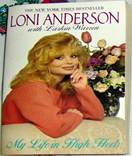题目内容
It was dangerous for you to swim in that river. You eaten by the fish.
- A.might have been
- B.must have been
- C.could have been
- D.should have been
试题分析:考查情态动词。A也许已经做了;B一定做了;C可能做了;D本应该做实际上却未做;C项与A项是近义词,但是C项的语气更强。句意:在那条河里游泳很危险。你有可能会被鱼吃掉。根据句意说明C正确。
考点:考查情态动词
点评:要注意情态动词与have done连用的时候的不同含义。区别是虚拟语气还是表示推测。

Valentine’s Day is named for Saint Valentine, an early Christmas churchman who helped young lovers. Valentine was killed for his Christian beliefs on February 14 more than 1700 years ago, but the day which  is named after him is even earlier than that.
is named after him is even earlier than that.
More than 2,000 years ago, the ancient Romans celebrated a holiday for lovers. As part of the celebration, girls wrote their names on pieces of paper and put them in a large container. Boys reached into the container and pulled one out. The girl whose name was written on the paper became his lover or sweet heart for a year.
Now, lovers still put their names on pieces of paper and they sent each other Valentine’s Day cards that tell of their love. Sometimes they also send gifts, like flowers or chocolate candies. Americans usually send these gifts and cards through the mail system. But some use another way to send this message. They have it printed in a newspaper. The cost is usually a few dollars. Some of the messages are simple and short, “Jane, I love you very much”. Others say more. This one, for example, “Dan, Roses are red. Violets are blue. I hope you love me as much as I love you. Forever, May.”
Most of the newspapers that print such messages are local, but USA Today is sold throughout the United S tates and 90 other countries. This means someone can send a Valentine message to the lover in a far-away place almost anywhere in the world. These messages cost 80 dollars and more. An employee of USA Today says readers can have a small heart or rose printed along with their messages this year. Will this kind of Valentine’s Day message reach the one you love? Well, just make sure he or she reads the newspaper.
tates and 90 other countries. This means someone can send a Valentine message to the lover in a far-away place almost anywhere in the world. These messages cost 80 dollars and more. An employee of USA Today says readers can have a small heart or rose printed along with their messages this year. Will this kind of Valentine’s Day message reach the one you love? Well, just make sure he or she reads the newspaper.
【小题1】When was the day named after Valentine?
| A.More than 1700 years ago before Valentine’s death. | B.More than 2, 000 years ago. |
| C.On February 14. | D.It is not mentioned in the passage. |
| A.Girls put paper with their names into a container. |
| B.Boys and girls became sweet hearts by chance. |
| C.Girls and boys chose life lovers in the holiday. |
| D.It was celebrated as a holiday for lovers. |
| A.like what the ancient Romans did | B.by sending gifts to each other |
| C.by printing newspapers | D.by spending lots of money |
| A.The ancient Roman girls were more easy-going. |
| B.Valentine was killed for not helping the government. |
| C.USA Today helps readers to send roses with printed messages. |
| D.Valentine was honored for his Christian belief and warm heart. |
| A.tell us something about Valentine’s Day | B.advertise for USA Today |
| C.tell us that Americans are open to express love | D.sell roses on Valentine’s Day |
HOLLYWOOD(UPI)—Loni Anderson decided last year it was time to change her career around to play moms and comedy instead of pretty young girls.
So far, most people remember her as Jennifer Marlowe, the role she played in her first film in 1982.
This summer people will see Anderson in A Night as Roxbury, a film produced and directed by Amy Heckerlin.
“In the film I have two sons. One is 26, and the other is 30. Isn’t that interesting? I know I don’t look that old, but that’s what’s so fun about it.”
“My character dresses in clothes too short, too tight. Dan Hedaya plays my husband. We’re a couple with a lot of money and no taste. Our sons are complete idiots(白痴). Their purpose in life is to get into the Rich Young Man Club where everybody is proud of his wealth.”
“As you can tell, I’m doing things I’d never have done at the beginning of my career.”
“But I am who I am. I’ve worked as an actress a long time and now I can be anything I want. It’s a great time for me. I don’t have anything to prove.”
“I hadn’t done comedy in a long time. It’s what I do best and what I like best. At this point in my life I want to look a little bit foolish. I think that would be something new for me.”
【小题1】What had Loni Anderson probably played most in her past film career?
| A.Pretty young girls. | B.Old mothers. |
| C.Foolish persons. | D.Rich women. |
| A.Last year. | B.This year. | C.1972. | D.1982. |
| A.Her clothes. | B.Her husband. |
| C.Her role type. | D.Her living place. |
| A.Newspaper. | B.Science magazine. |
| C.Tourist guide book. | D.Historical record. |